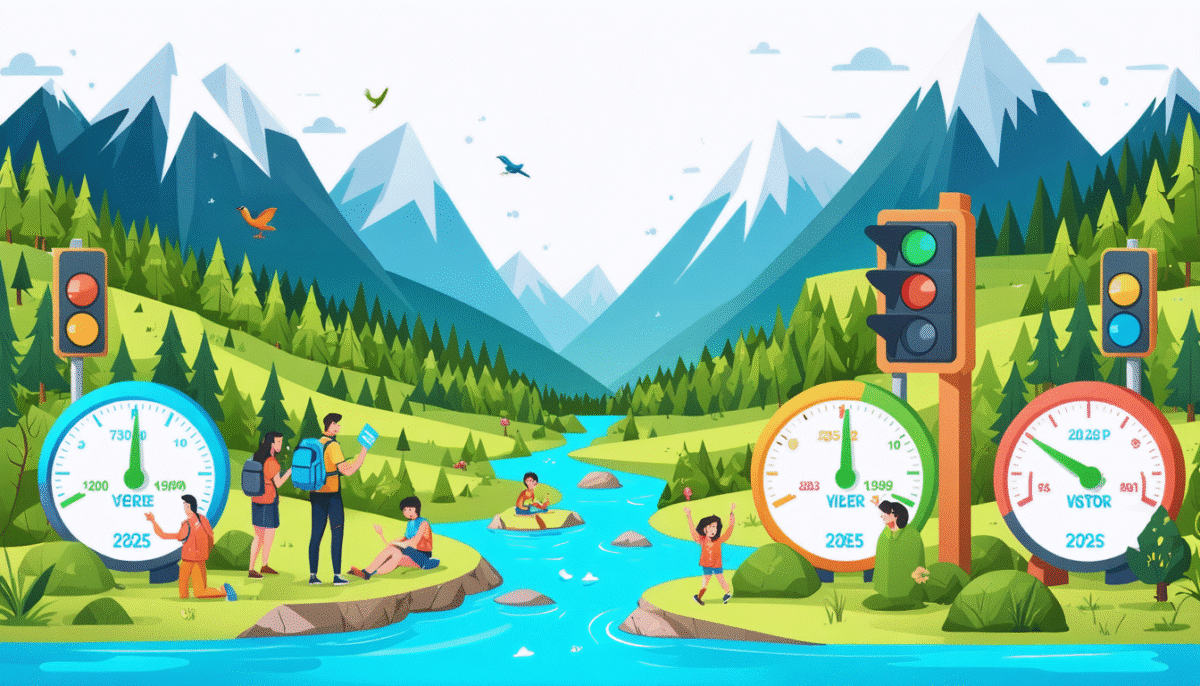Summer 2025 will rhyme with regulation in iconic nature sites! Gone are the days of uncontrolled crowds rushing to dive into the turquoise waters of the calanques or walk the flower-lined paths of the islands. From now on, with advance reservations and strict daily quotas, accessing these natural gems will be akin to winning a golden ticket. A renewed system designed to preserve the environment as well as the enjoyment of those lucky enough to gain access.
Vacations in the great outdoors, hair in the wind and feet in the water, yes, but not at any cost! In response to the massive influx of visitors and the fragility of their natural landscapes, several iconic French sites, from the Sugiton Calanque in Marseille to the island of Bréhat in Brittany, are reintroducing their famous “limits.” In 2025, access will no longer be free but well-regulated: advance reservations, daily quotas, and strengthened controls will become the new order of the day to protect these threatened treasures. Ready to prepare your travel diary… and challenge the reservation clock?
A summer framed… but guaranteed to be a grand spectacle
Impossible to resist the call of the turquoise waters or the flowered paths… but this year, you will also need to resist that last-minute urge! For 2025, the trend is towards regulation of our flagship natural sites. If secret beaches and Breton islands make you dream, arm yourself with patience and organization: spontaneity is no longer an option, booking becomes your passport to paradise.
The Sugiton Calanque in Marseille: protected nature and filtered access
The emblematic Calanques National Park, between Marseille and Cassis, is a pioneer in this regard. After years of overcrowding, the Sugiton Calanque and the Pierres Tombées will only be accessible by registration… and in an ultra-limited number! Forget the 3000 daily visitors of yesteryear: from next summer, only 400 lucky ones per day will be able to discover—or rediscover—these idyllic creeks, provided they book at least three days in advance.
This initiative, planned until 2027, aims to heal the wounds left by past influxes. “We were losing the land, visitors were trampling the vegetation,” reports Zacharie Bruyas, communication officer for the park. Good news, the measure is appreciated: a more peaceful experience, recovered landscapes, and a preserved ecosystem. A bit of administrative effort for a lot of on-site serenity… who would complain about that?
The island of Bréhat: the Breton jealous of its charms
If we head north, the exotic island of Bréhat also continues to jealously guard its fragile nature. From now on, from July 28 to August 22, access will be limited to 4700 people each day, nothing more—keep an eye on your dates! Locals, workers, police, and rescue services aside, only travelers with a reserved pass will be able to tread the paths of this Breton jewel.
This temporary and strictly monitored access is not unprecedented, but it is becoming more refined each season. Even shipping companies must play along, risking their reservation books being scrutinized by the authorities! Before pulling out the sunscreen and hat, remember to book your crossing at the right time and to plan a little more than just a stroll in Saint-Malo, where the reflection between tourist promotion and regulation is also in full swing.
À lire Travel ban on Trump: do you still have the possibility to visit the affected countries?
Regulations under the microscope: France is not alone #
An international movement for preservation
France is not the only country “turning off the tap” on mass tourism. Elsewhere, measures are hitting hard: Japan is preparing to impose visitor quotas for access to certain temples, while Spain will require proof of certified accommodation for long stays. And in Ibiza, there are plans to regulate the influx of tourist vehicles to stem the famous “island stress” (find out more).
This tightening of regulations, far from being a punishment, is seen as a necessity to prevent nature from permanently losing the battle against crowds and careless footsteps. This wave of regulation also raises questions about modern travel habits, while 7 out of 10 French travelers indicate they want to avoid traditional booking platforms in 2026, opting for less industrial and more intimate experiences.
To book or improvise: the era of planned vacations #
Gone are the days of spontaneous dawn getaways decided on a whim! Booking takes precedence, becoming almost the most strategic step of the vacation. Those who succeed in securing their ticket will be able to enjoy a gentler, quieter environment that is infinitely more respectful of nature, far from the summer tumult of yesteryear. The magic of vacation now lies as much in the meticulous preparation of one’s journey as in the discovery itself!
Regulating access offers a second chance to our natural sites while promising visitors, whether seasoned or newcomers, a unique experience, blending rediscovered authenticity and a well-deserved breath of fresh air. The limits are back, and the planet can finally catch its breath.
À lire The reasons for Trump’s travel ban against these 12 countries


